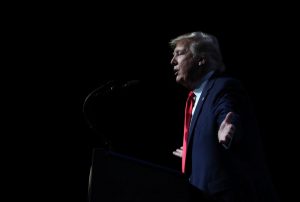By Ritu,
The Bank of Russia bucked a global trend for interest-rate cuts amid the spread of coronavirus by keeping borrowing costs on hold amid a currency slump.
The benchmark interest rate was held at 6%, according to a statement Friday, following 175 basis points of easing in the past year. The decision was forecast by all but one of the 37 economists in a Bloomberg survey.
Future rates moves will take into account “actual and expected inflation dynamics” relative to the central bank’s 4% target and economic developments, according to the statement. “Risks posed by domestic and external conditions and the reaction of financial markets” will also be important.
Forward-action guidance was dropped from the central bank’s statement, but Governor Elvira Nabiullina is due to hold an off-schedule news conference at 3 p.m. Moscow time. The statement also refrained from giving forecasts on oil and economic growth.
Russia’s central bank is contending with the double shock of an oil price slump and the threat of a global recession as economies across the world shut down amid the pandemic. The bank warned that an economic downturn is possible in Russia in the coming quarters and inflation could temporarily exceed the target this year.
A more-than 20% plunge in the ruble in 2020 has prompted options markets to start predicting a shift to rate hikes in the coming months.
Key Insights
- Annual inflation has fallen for 11 straight months, reaching a near-record low of 2.3% in February. The ruble’s slide is likely to push it back toward a 4% target faster than earlier expected, the central bank said last week.
- The ruble rebounded on Thursday after the central bank announced it would sell foreign currency when the price of Urals crude falls below $25 a barrel, a level it breached this week. This could mean about an extra $800 million of sales a month, according to VTB Capital.
- The country needs oil prices of around $40 a barrel to balance its budget. An average oil price of $25 a barrel would tip the economy into recession, according to a “risk scenario” published by the central bank last year.
- Russia has yet to attribute any deaths to coronavirus, but the economy will be hurt by recessions in the European Union and China, its main trading partners.





